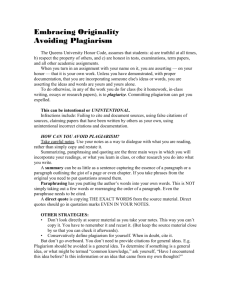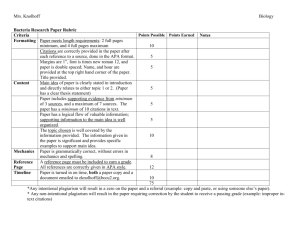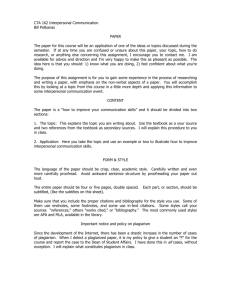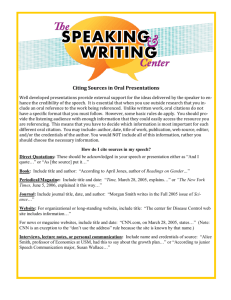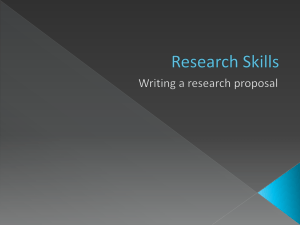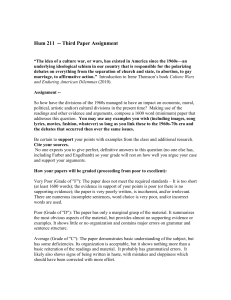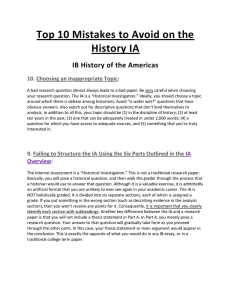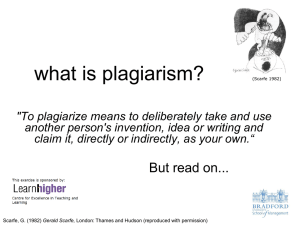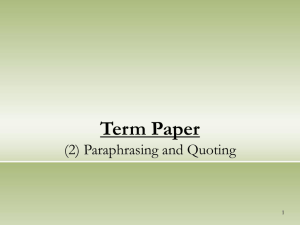Avoiding Plagiarism
advertisement
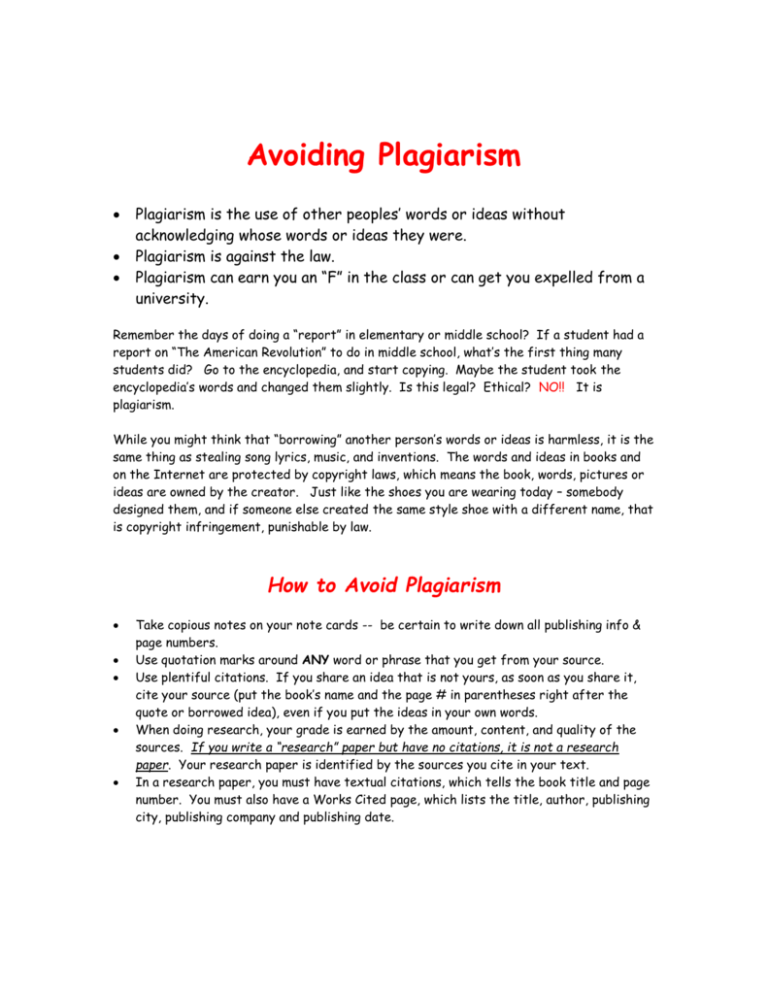
Avoiding Plagiarism Plagiarism is the use of other peoples’ words or ideas without acknowledging whose words or ideas they were. Plagiarism is against the law. Plagiarism can earn you an “F” in the class or can get you expelled from a university. Remember the days of doing a “report” in elementary or middle school? If a student had a report on “The American Revolution” to do in middle school, what’s the first thing many students did? Go to the encyclopedia, and start copying. Maybe the student took the encyclopedia’s words and changed them slightly. Is this legal? Ethical? NO!! It is plagiarism. While you might think that “borrowing” another person’s words or ideas is harmless, it is the same thing as stealing song lyrics, music, and inventions. The words and ideas in books and on the Internet are protected by copyright laws, which means the book, words, pictures or ideas are owned by the creator. Just like the shoes you are wearing today – somebody designed them, and if someone else created the same style shoe with a different name, that is copyright infringement, punishable by law. How to Avoid Plagiarism Take copious notes on your note cards -- be certain to write down all publishing info & page numbers. Use quotation marks around ANY word or phrase that you get from your source. Use plentiful citations. If you share an idea that is not yours, as soon as you share it, cite your source (put the book’s name and the page # in parentheses right after the quote or borrowed idea), even if you put the ideas in your own words. When doing research, your grade is earned by the amount, content, and quality of the sources. If you write a “research” paper but have no citations, it is not a research paper. Your research paper is identified by the sources you cite in your text. In a research paper, you must have textual citations, which tells the book title and page number. You must also have a Works Cited page, which lists the title, author, publishing city, publishing company and publishing date.
